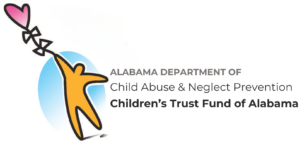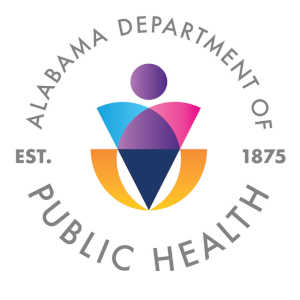When discussing the opioid epidemic, much of the topic is focused on young adult and adult drug users who are addicted to prescription opioids, heroin, or fentanyl. However, they aren’t the only victims of the growing crisis. Young children, too, are increasingly finding themselves as victims of the deadly opioid epidemic.
In a study published earlier this year in the Journal of Pediatrics, they report that the number of children who died as a result of an opioid-related fatality has increased over time. In 2005, opioids accounted for approximately 24.1% of substances contributing to child deaths. But in 2018, that number was as high as 52.2%, and may be even higher today.[1]
Kait Brown, the clinical managing director of the American Association of Poison Control Centers, explains that “opioids are associated with the most cases of pediatric fatality compared to other substances.”[1]
Of these deaths, more than 65% occur at home, and nearly one-third happen while under the supervision of someone who was not the biological parent. Also, more than two-fifths of the children who died were infants less than a year old. Thankfully, there are steps parents and caregivers can take to keep infants and children safe, both inside and outside the home, from the dangers lurking behind the opioid epidemic.
Keeping Medications Safe at Home
Most of the time, young kids who are exposed to opioids are exposed accidentally. Many parents assume that child-proof bottles or stiff plastic packaging are enough to keep curious little hands away from danger, but this isn’t always the case. Also, many people keep their prescriptions in easy-to-open pill organizers, containers, or even their pockets–all of which are places children may be able to access.
As kids grow and develop, they explore their environment through their senses. They pick things up and enjoy sticking them in their mouth. While this is normal infant behavior, it can be life-threatening behavior when prescription medications like opioids are involved. As a result, it is crucial to know how to keep your medications safe at home.
Ways to keep opioid drugs and other prescriptions safe from kids include:
- Secure Storage – Store medications in a locked cabinet or a high, out-of-reach location that is inaccessible to children. Avoid leaving medications in easily accessible places such as countertops, nightstands, or purses. If you use a padlock, make sure only you know the combination.
- Separate Storage – Keep prescription medications separate from other household items. Store them separately from vitamins, cosmetics, cleaning products, and other substances that may be mistaken for medication.
- Use Child-Resistant Containers – Child-resistant containers are designed to be difficult for young children to open. Remember to close the containers tightly after each use. Do not store medications in your pockets, wallet, or purse.
- Educate Children on the Risks – Teach children about the potential dangers of opioid medication and the importance of not touching or consuming medications without adult supervision. Explain that medications are only for adults or under adult supervision.
- Practice Proper Medication Disposal – Dispose of unused or expired medications properly. Be sure to follow local guidelines for safe medication disposal, such as using take-back programs or community drop-off locations. Do not flush medications down the toilet or throw them in the trash where children or pets can access them.
- Conduct a Regular Inventory Check – Regularly check your medication inventory to ensure that all medications are accounted for and properly stored. Discard any expired or unused medications promptly.
- Be Mindful of Visitors and Their Medications – If you have guests or visitors in your home, be mindful of their belongings, especially any medications they may bring. Request that they store their medications securely to prevent accidental access by children.
- Travel with Medications Safely – When traveling with medications, ensure they are securely stored in child-resistant containers. Keep them with you and do not leave them unattended in hotel rooms or vehicles.
- Practice Safe Medication Administration – Always follow the prescribed dosage and administration instructions provided by healthcare professionals. Do not refer to medications as “candy” or use appealing packaging that may attract children. Remember, your actions will influence your child’s behavior, so it is critical that you practice safe medication administration.
- Be Prepared for an Emergency – Keep important emergency contact numbers, including poison control, easily accessible. Be prepared to take immediate action if a child accidentally ingests medication, and seek medical assistance right away.
Also, purchase and carry naloxone (Narcan) to be used in the event of an emergency. it is safe for use in kids in the event of an overdose!
Talking to Kids About the Opioid Epidemic
Having open and continuing conversations with your children about the opioid crisis is crucial to preventing opioid abuse in the future. If your children understand what opioids are, why they are so dangerous, and what the consequences may be for using them, they may be less likely to fall victim to the opioid crisis, themselves.
Key tips for discussing the opioid epidemic with kids include:
- Keep it age appropriate. The opioid crisis is a complex issue that certain ages may not understand.
- Start early using simple, non-threatening language. Try shaping the conversation around medication safety rather than overdose.
- Encourage your kids to ask questions. This conversation should be a two-way street, and when they ask questions, you can get a better idea of their knowledge on the subject.
- Provide context by explaining that opioids are meant for pain relief but can be harmful if misused, emphasizing that addiction is an illness affecting anyone.
- Focus on prevention by teaching children to avoid using others’ medication and to seek help from a trusted adult if they encounter drugs.
- Be sure to encourage a sense of empathy and support regarding those suffering from opioid addiction to discourage stigma.
- Be a role model by demonstrating responsible medication use and healthy coping mechanisms.
- Maintain open communication, letting children know they can trust you to listen and support them without judgment.
By keeping opioid medications locked away and engaging in an ongoing conversation, you can equip children with the knowledge and wisdom necessary to make informed choices and stay safe in the face of the opioid epidemic.
References:









